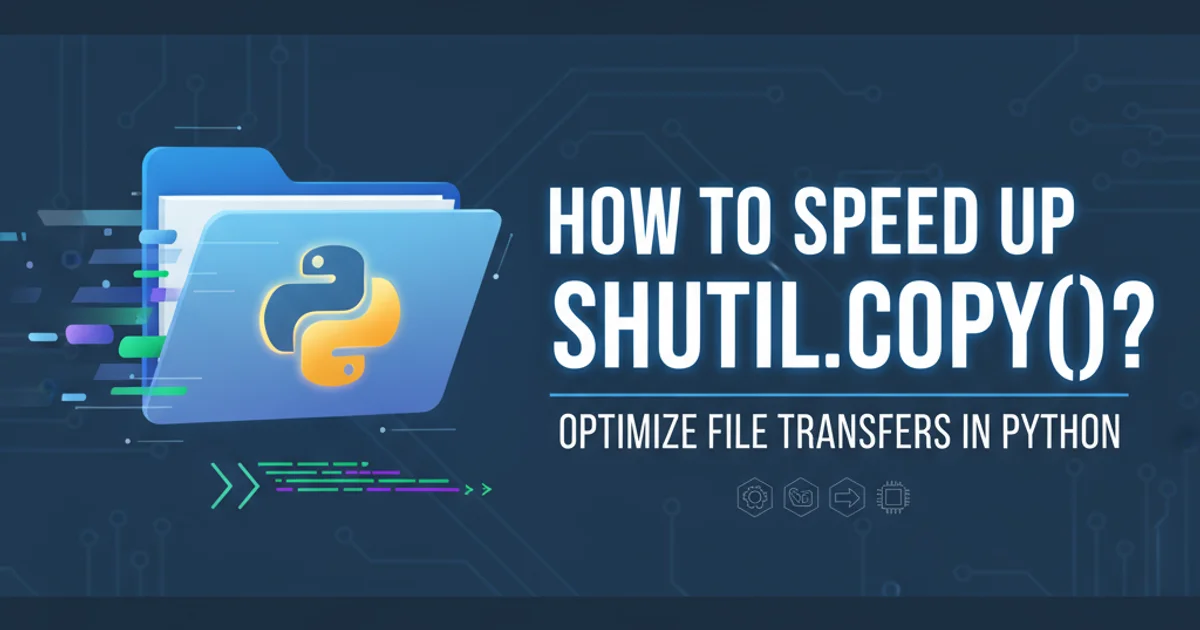Why is volatile needed in C?
Categories:
Understanding 'volatile' in C: When and Why It's Essential

Explore the critical role of the volatile keyword in C programming, how it prevents aggressive compiler optimizations, and its necessity when dealing with hardware registers, shared memory, and signal handlers.
In C programming, the volatile keyword is often misunderstood or overlooked, yet it plays a crucial role in specific scenarios. Its primary purpose is to inform the compiler that a variable's value can change unexpectedly, outside the normal flow of the program's execution. This prevents the compiler from performing certain optimizations that, while generally beneficial, could lead to incorrect behavior when dealing with special types of memory or concurrent operations. This article will delve into why volatile is needed, its common use cases, and how it impacts compiler behavior.
The Problem: Aggressive Compiler Optimizations
Modern C compilers are highly sophisticated, employing numerous optimization techniques to generate faster and more efficient code. One common optimization is caching variable values in registers or eliminating redundant memory reads. If the compiler determines that a variable's value hasn't changed within a certain scope, it might reuse a previously loaded value instead of reading it again from memory. While this is usually desirable, it becomes problematic when the variable's value can be altered by external factors.
flowchart TD
A[C Source Code] --> B{Compiler Optimization}
B -->|No volatile| C[Assumes variable state is predictable]
C --> D{Optimizes memory access}
D --> E[Potentially stale value used]
B -->|With volatile| F[Assumes variable state is unpredictable]
F --> G{Disables certain optimizations}
G --> H[Always reads from memory]
H --> I[Correct value used]
E --> J(Incorrect Program Behavior)
I --> K(Correct Program Behavior)Impact of 'volatile' on compiler optimization and program behavior.
When is 'volatile' Necessary?
The volatile keyword is essential in three primary scenarios where a variable's value can change without the compiler's knowledge:
1. Memory-Mapped Hardware Registers
Embedded systems often interact directly with hardware through memory-mapped registers. These registers are memory locations whose values are controlled by hardware devices. For example, a status register might indicate if a peripheral is ready, or a data register might hold incoming data. The hardware can change the value of these registers at any time, independently of the CPU's instructions. Without volatile, the compiler might optimize away reads to these registers, assuming their values haven't changed, leading to the program missing critical hardware events or reading stale data.
#define STATUS_REGISTER (*(volatile unsigned int *)0x10000000)
void wait_for_ready() {
// Without volatile, compiler might optimize this loop
// by reading STATUS_REGISTER only once.
while (!(STATUS_REGISTER & 0x01));
}
// Correct usage:
volatile unsigned int * const pStatusRegister = (volatile unsigned int *)0x10000000;
void wait_for_ready_volatile() {
while (!(*pStatusRegister & 0x01)); // Compiler will re-read *pStatusRegister every iteration
}
Using volatile for memory-mapped hardware registers.
2. Global Variables Modified by Interrupt Service Routines (ISRs)
In embedded systems and operating system kernels, Interrupt Service Routines (ISRs) are special functions that execute asynchronously in response to hardware interrupts. If an ISR modifies a global variable that is also accessed by the main program, the compiler might optimize the main program's access to that variable. For instance, if the main program reads the variable multiple times, the compiler might cache its value. If an ISR then changes the variable, the main program might continue using the cached, stale value. Declaring the global variable volatile forces the compiler to always read its current value from memory.
volatile int interrupt_flag = 0;
// ISR example (simplified)
void timer_isr() {
interrupt_flag = 1; // Modified by ISR
}
void main_loop() {
// ... some code ...
while (interrupt_flag == 0) {
// Wait for interrupt_flag to be set by ISR
// Without volatile, compiler might optimize 'interrupt_flag == 0'
// to always be true after the first check if it assumes no external changes.
}
// ... handle interrupt ...
interrupt_flag = 0;
}
Using volatile for variables shared between main code and ISRs.
3. Global Variables Accessed by Multiple Threads (Shared Memory)
In multi-threaded programming, if multiple threads access and modify a shared global variable, volatile can help ensure that each thread always reads the most up-to-date value from memory. However, it's crucial to understand that volatile alone is not a substitute for proper synchronization mechanisms (like mutexes or semaphores). While volatile ensures memory visibility, it does not guarantee atomicity or prevent race conditions. It only ensures that the compiler doesn't optimize away memory accesses, forcing reads and writes to actual memory.
volatile int shared_counter = 0;
void* thread_func(void* arg) {
for (int i = 0; i < 100000; ++i) {
shared_counter++; // This operation is NOT atomic, even with volatile
}
return NULL;
}
// Proper synchronization is still required for correctness in multi-threading.
// volatile only ensures memory access, not atomicity.
// For example, using a mutex:
// pthread_mutex_t counter_mutex = PTHREAD_MUTEX_INITIALIZER;
// pthread_mutex_lock(&counter_mutex);
// shared_counter++;
// pthread_mutex_unlock(&counter_mutex);
Using volatile with shared variables in multi-threaded contexts (with a warning).
volatile is not a synchronization primitive. It only affects compiler optimizations related to memory access. It does not guarantee atomicity, memory ordering, or prevent race conditions in multi-threaded environments. For thread safety, always use appropriate synchronization mechanisms like mutexes, semaphores, or atomic operations.In summary, volatile is a specialized tool for specific low-level programming scenarios. It's not a general-purpose solution for concurrency issues, but rather a directive to the compiler to disable certain optimizations that would otherwise lead to incorrect behavior when dealing with external, unpredictable changes to memory.